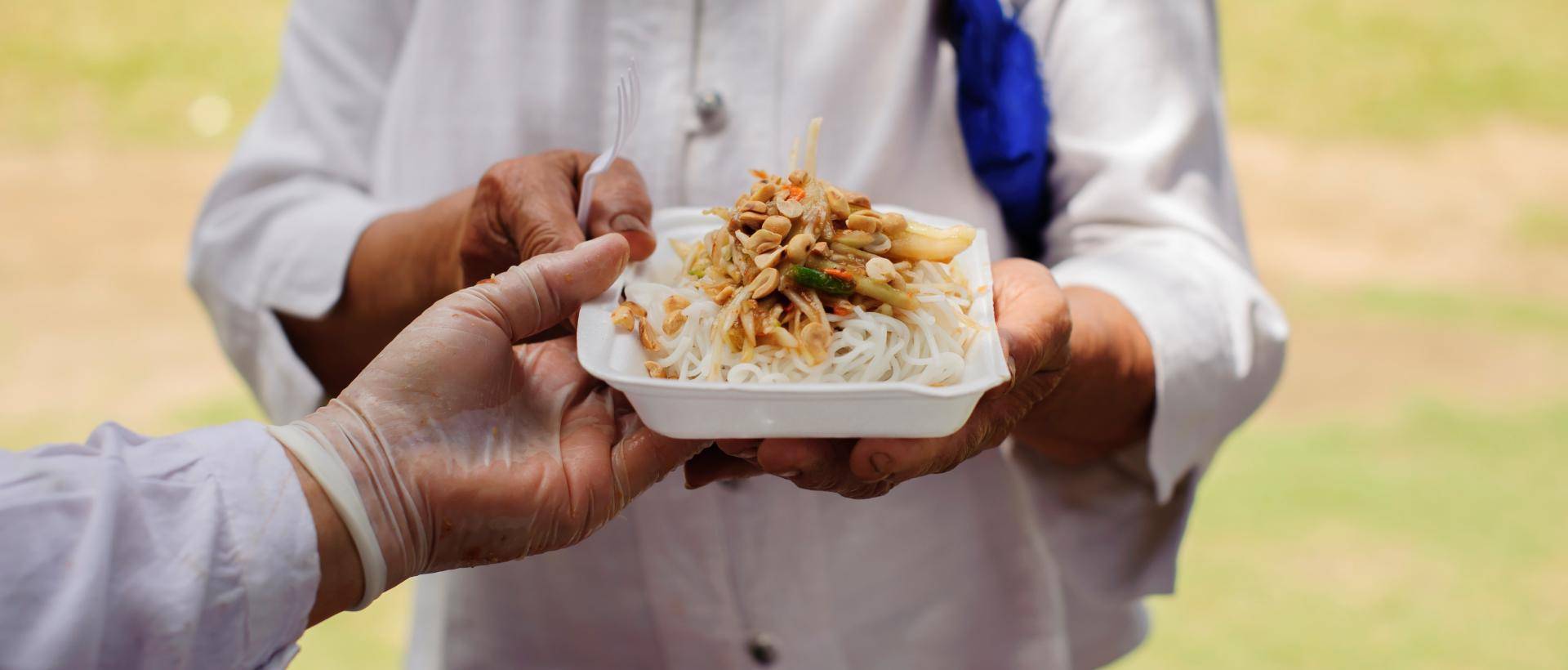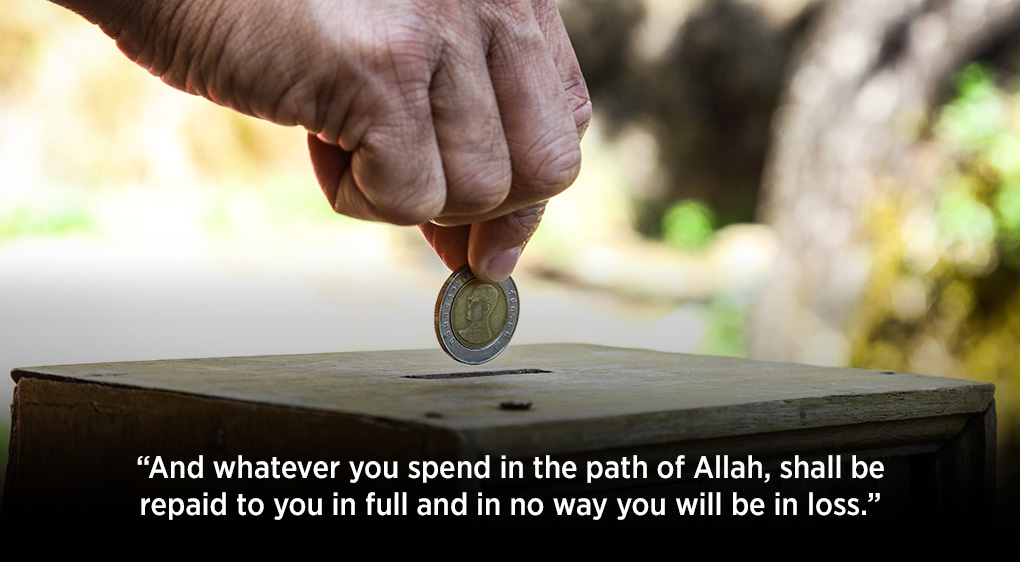
How To Give

SADQAH
Sadaqah is an optional contribution that keeps on giving and is a donation given with no expectation of reward or something in return; it is simply given as an act of kindness. Sadaqah is considered a short-term contribution, something that can aid someone in need immediately, while Sadaqah Jariyah is longer-term and continues to give, even after you have passed.
Sadaqah can be given in many ways, from monetary donations made online from home or in person at the mosque, to physical donations such as goods or clothes. Anything that provides support or care for someone who is less fortunate. Sadaqah Jariyah can be a monetary donation, however, it must be with the intent to fund a long-term project, such as a contribution that pays for the planting of fruit-bearing trees or the construction of a water pump or well. Sadaqah Jariyah can even be given to provide an education to others about Islam and the Qu’ran, ensuring that they can pass on their knowledge and teach others.
What is the Difference Between Sadaqah and Lillah?
There are several different types of Sadaqah in addition to Sadaqah and Sadaqah Jariyah, such as Lillah. Lillah means ‘for the sake of Allah’ and is a type of Sadaqah donation and instead of being made to an individual or persons in need, it can be made to an institution such as an orphanage, hospital or mosque. Like Sadaqah, it is not a compulsory contribution, there is no minimum amount and no restriction on who can receive funds unlike Zakat, which is given to a strict group of people in need and Sadaqah which is usually given to an individual or community group.
Can You Give Sadaqah To Non-Muslims?
While there are loose rules around giving Sadaqah, such as the intention and to give with no expectation of reward, there are no rules on who can receive Sadaqah as it is an act of kindness intended to provide aid and support to anyone in need – but they must be in need. Sadaqah cannot be given to any individual who is not struggling and holds enough wealth to support themselves and their family.
At Orphans in Need, we provide support to children in need from all backgrounds and believe every child has the right to a happy, secure and comfortable life with access to medical aid and education. Your Sadaqah donations continue to provide our teams with the resources we need to ensure confident and happy children.
When To Give Sadaqah?
Sadaqah can be given at any time throughout the year, night or day. Many people choose to give Sadaqah after illness or partake in giving Sadaqah after a bad dream, although this is not an expectation of Islam. Others choose to give Sadaqah during Ramadan when the rewards are greater, however, Sadaqah cannot be given in place of Zakat and is an additional contribution made with the intent to be kind.
The Importance of Sadaqah in Islam
Sadaqah is not just an act of kindness but it is a process that keeps the Muslim Ummah strong by ensuring our less fortunate brothers and sisters are supported and receive the care they need to live day-to-day. It ensures that communities can continue to grow and the people and children within them receive education, medical care, food and clothing to make it through harsh winters and dry summers.
By giving Sadaqah, you defy Shaitan’s intention to keep us in poverty and to keep us greedy. You purify your own wealth and you ensure those that are forced to go without can enjoy life’s basic necessities without fear or struggle. Together, we can build a better and brighter world for everyone including our orphans and widows who rely on our kindness and support.
Giving Sadaqah With Orphans in Need
The best way to give Sadaqah is any way you can, be it a smile, an act of compassion or a donation made to a worthy cause. You can donate Sadaqah to Orphans in Need by visiting our donate page and choosing Sadaqah from the drop-down on the cause you’d like to support.
Just $30 a month, that’s only $1 a day, can help us make even small improvements to the lives of our orphans. Please give Sadaqah give Orphans in Need today and be the difference these children need for a better future.
““Shaitan threatens you with poverty and enjoins you to be niggardly, and Allah promises you forgiveness from Himself and abundance; and Allah is ample-giving, knowing.””
(Qu’ran 2:268)





